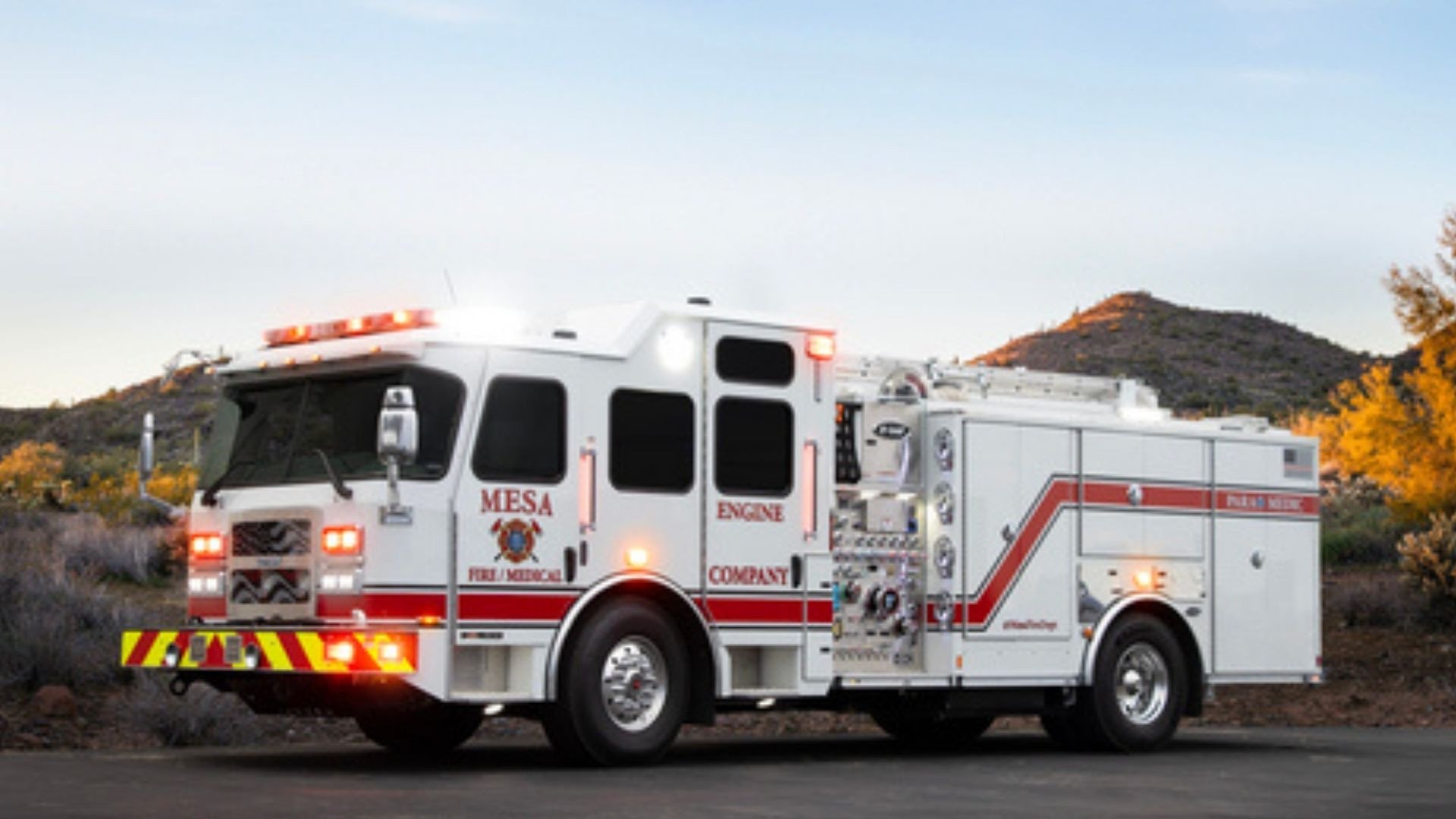Arizona’s first all-electric fire truck pumps 750 gallons per min | Mesa unveils Arizona’s inaugural all-electric fire truck, prioritizing firefighter safety and environmental sustainability, align…::undefined
I only allow environmentally conscious fire trucks to put out my burning house.
Cool
Isn’t all-electric less versatile? I think a hybrid-electric option will be better.
It looks like it has an optional range extender motor. And while the article doesn’t explicitly say it has it, it does seem to imply it.
They should make it hybrid electric, but make it so that each motor can act independently if needed.
If one system fails, the other system can carry them on until they can get repairs.
Minor collision cracked the radiator? No problem. Just use elctric until it gets fixed.
Even if the engine is sent to fight forest fires and embers burn through the air filter of the ICE, the electric motors can still drive each wheel. Or if battery gives out for whatever reason, they can run on just the ICE.
This has an optional engine you can add to do just that.
I can’t tell if this is a super short article or I’m just not subscribed. I was trying to find the cost of the truck.
This is the first of its kind from the company apparently. There is no public price.
You can read up on the other specs here on their website.
Putting a giant battery array in the middle of a brush fire sounds like a recipe for disaster.
Ive seen videos of trucks trying to outrun a wildfire, and they usually don’t fare that well. Melted everything, the crew barely making it out alive etc. What’s the logic in adding in a cant-be-put-out-with-water-fire-starter in the middle of all that?
EDIT: Why are you booing me, you know I have a valid point.
Wait, what does the truck use right now for fuel? Isn’t diesel flammable?
Diesel is of course flammable, it’s used in internal combustion engines after also but as far as flammable liquids go it’s not very easy to ignite, you need higher pressures and/or heat to get it to burn, under normal conditions you’d probably have a hard time setting a puddle of diesel on fire with a regular match or lighter, diesel engines use higher compression ratios than regular gasoline engines. Sometimes you can actually even put out a small fire by pouring diesel on it the same way you could with water (I don’t recommend trying this) And when you do get it to light, it can be put out with fairly ordinary firefighting foams and such. In an intense wildfire I’m sure there are plenty of concerns about a tank full of diesel in a truck, but significantly less so than an equivalent amount of gasoline.
Lithium batteries, like most EVs use, are kind of heat sensitive, have a lower flash point, burn hotter, and heat can cause some pretty significant efficiency and longevity issues even if they don’t catch fire, and when they do they’re almost impossible to extinguish.
I’m not saying this to dis EVs, I’m all for them and think this is exciting news, but there’s probably some very valid concerns about big battery packs in firefighting equipment that need to be taken into account. That said, the danger of lithium battery fires and other issues having to do with heat and such aren’t exactly secrets and I’m sure the people designing these sorts of trucks are well-aware of them and hopefully took those concerns into account, figured out how to minimize the risks, etc. and made guidelines on how, when, and where they should or should not be used (there’s a lot of different types of fire apparatus out there, not everything is designed to respond to every type of fire.) I’ll admit I haven’t read the article, let alone done any research into these particular trucks, so maybe they’re even using some other battery chemistry that has less fire risks than common lithium batteries do.
If your giant truck filled with flammable substances is on fire in the middle of a wildfire, I don’t think it makes much difference if it’s cookies burning or fireworks. I don’t think firetruck fires are common enough to worry about it.
Sure, once the truck’s on fire your kind of boned either way, the issue though is whether it might be easier for a lithium battery to catch fire than a tank of diesel.
And whether the battery pack is able to cope with the heat, how it affects the battery capacity, efficiency, longevity, etc. Even if it doesn’t catch fire, if your battery stops holding a charge after being around a big fire, that’s a pretty big issue for a fire truck.
Again, these kinds of issues aren’t secret, so I’m sure they think it’s something that can be worked around, mitigated, or maybe won’t even come into play at all
deleted by creator






